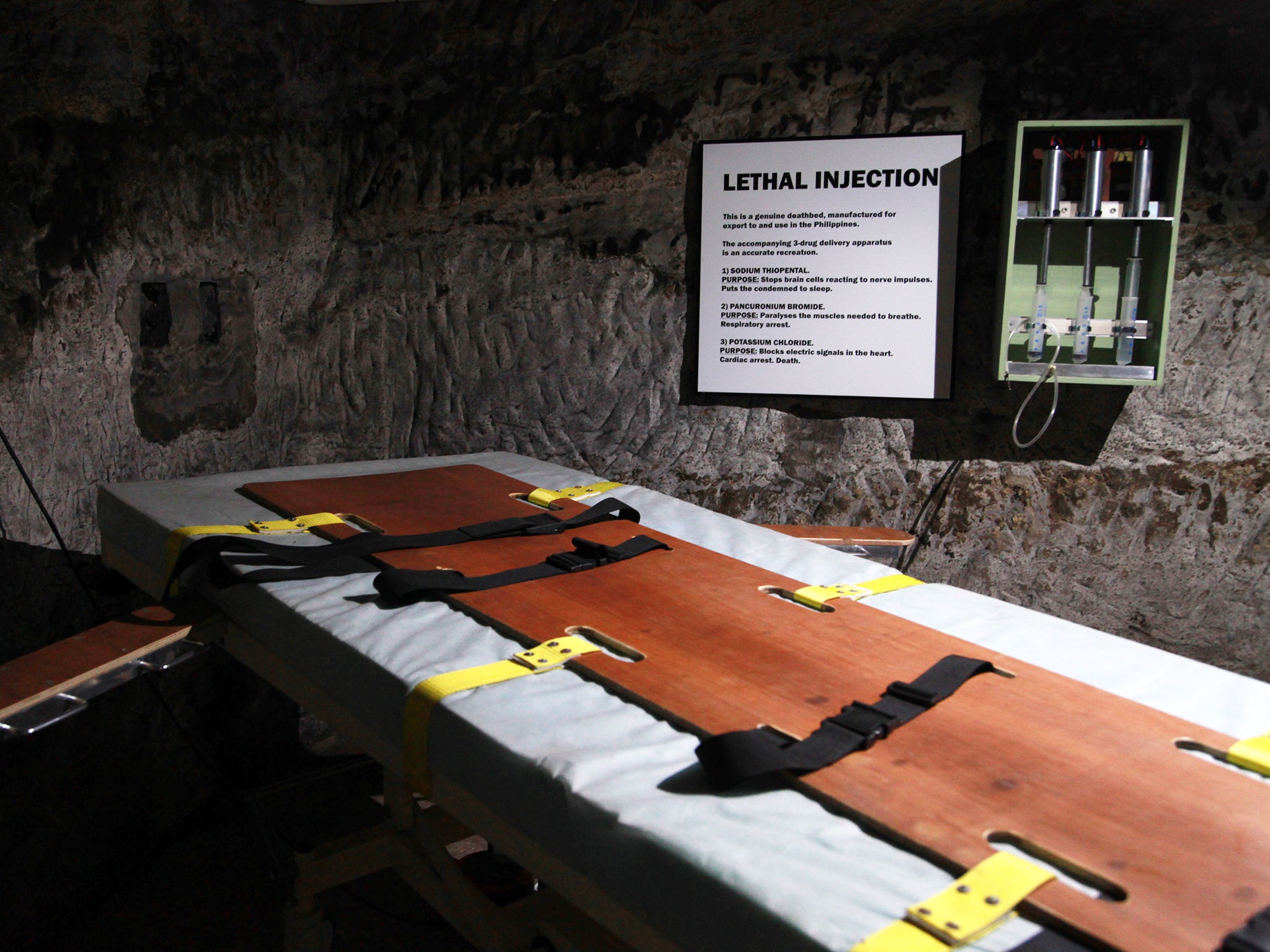Ohio delays executions until 2017 because of lethal injection drugs shortage
Ohio has run out of supplies of its previous drugs and has unsuccessfully sought new amounts

Ohio has delayed executions until 2017 because of problems finding supplies of lethal injection drugs.
The announcement on Monday means Ohio will go at least two years without putting anyone to death and marks another setback in efforts to carry out capital punishment in the state.
The Department of Rehabilitation and Correction says the dates of 12 inmates have been pushed into the future through warrants of reprieve by Governor John Kasich.
The developments mean Ohio will not execute anyone until January 2017. More than two dozen executions are scheduled nearly four years in the future, to August 2019.
Ohio has run out of supplies of its previous drugs and has unsuccessfully sought new amounts, including so-far failed attempts to import chemicals from overseas.
Last week a state Senate Committee considered legislation where convicted murderers who had a severe mental illness when they committed their crime would face a maximum punishment of life without parole instead of the death penalty.
The legislation would apply to defendants who don't meet legal standards for insanity or mental incompetency, but nonetheless had diminished capacity to understand their crime because of a condition like schizophrenia, schizoaffective disorder, bipolar disorder, delusional disorder or major depression. The bill would apply to the 141 inmates currently on Ohio's death row, allowing the possibility of re-sentencing.
A spokesman for Ohio Attorney General Mike DeWine said last week that the office has not taken a position on the legislation.
Join our commenting forum
Join thought-provoking conversations, follow other Independent readers and see their replies
Comments
Bookmark popover
Removed from bookmarks